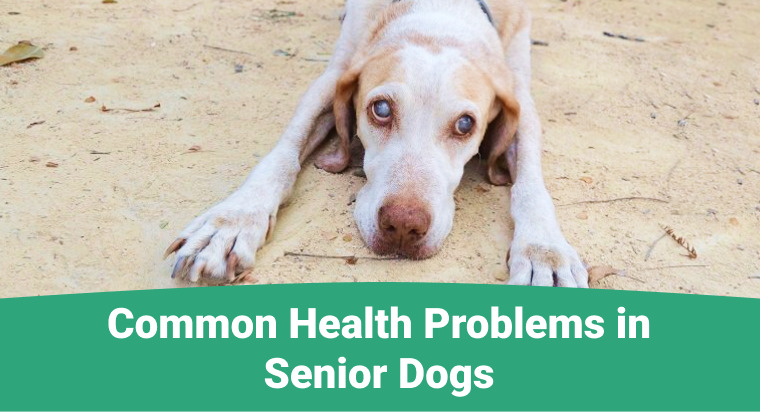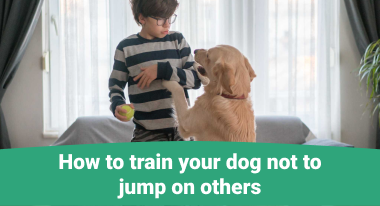Just like most mammals, German Shepherd puppies aren’t born with teeth. Along with being blind and deaf, German Shepherd puppies are toothless when they are born. They start to get their first set of teeth only after three weeks.
And if you are parenting a German Shepherd puppy for the first time, their teething process can be a bit challenging for you. In this article, we have encased the different stages of German Shepherd puppy teething. This guide will also help you handle the various stages of teething so that you and your puppy are ready for the challenges.
Teething Stages
German Shepherds go through 4 stages of teething.
- A German Shepherd grows 28 puppy teeth.
- These 28 teeth are replaced by a set of 42 adult teeth when they stop teething.
- The teething process continues for around six months until your German Shepherd gets all the 42 adult teeth.
Stage 1 – This stage lasts for 2 – 8 weeks. At the beginning of this stage, the puppies don’t have any teeth as they are born toothless. The first milk teeth will start to pop out only after around 2 – 3 weeks. It is the same period when the puppies start opening their eyes.
Resist yourself even if you want to hold your puppy, as it is best for the puppy not to leave his mother during this period of 8 weeks. Most of the puppy teeth grow between 6 – 8 weeks.
At first, the incisors grow out, i.e., the front teeth. After this, the canine teeth grow out, and at this stage, your German Shepherd puppy is ready to eat solid foods. And at last, the premolars come out at the back.
Stage 2 – At this stage, all the milk teeth have grown, and your puppy is able to eat solid foods. The last of the premolars grow out when your puppy is about eight weeks old.
Once the last premolar is out, your puppy can enjoy all of its 28 milk teeth. At this point, you can take your puppy to the vet to check if all of its milk teeth are out.
Stage 3 – This stage is called the falling out stage. This stage takes place between 12 – 16 weeks. Here is an interesting fact – German Shepherd puppies’ milk teeth start to fall down when they are 12 – 16 weeks old. When compared to other breeds, they tend to lose their milk teeth pretty early.
As the milk teeth fall out, the adult teeth start to push over. This is your puppy’s actual dental development stage.
Stage 4 – It is the final stage, and the stage continues till your puppy is eight months old. By then, your puppy will grow out all 42 of its adult teeth. This is the time when the teething of a German Shepherd puppy stops.
Teething Signs
Following are a number of signs that you can notice and know that your puppy is teething. You might be familiar with the old-fashioned way of telling when your puppy is teething, i.e., when they love to bite you or when you find the bite marks on your furniture.
However, when you are parenting a German Shepherd puppy, it is important to know about the other signs of teething and how long they last.
Augmented Chewing
Your puppy goes through pain just like a human kid when they start teething. To ease the pain, you will notice that your puppy starts to chew more often here and there. Mostly your shoes, furniture, or chewing toys.
This is the right time to make your house puppy-proof and keep all your valuable things out of your puppy’s sight, which it might chew. Go to the market and get as many chewing toys as you can to give it enough things to bite to ease the teething pain.
Sore Gums and Blood Spots
Your puppy’s milk teeth will start falling, and when they do, your puppy will get sore gums or even bleed. You can notice the blood spots on the chewing toys or the areas where your puppy frequently chews to ease its pain.
Don’t get too worried when you see the gums of your puppy swollen or bleeding. Though it is painful, it is quite normal. It is only because the adult teeth are trying to pop out.
Changed Behavior
Your puppy will go through pain for a few days, and it will cause physical distress, and it may make your puppy irritated.
During this period, your puppy might refuse to play and eat. However, keep him distracted with toys, attention, and love.
Mild Fever
When your puppy voyage through the teething process, it is natural to get a mild fever. So, there is nothing to worry about. The fever is quite similar to the fever a human child gets during the teething process.
Missing Teeth
Finding a puppy tooth while doing daily cleaning tasks is quite normal. They will lose their milk teeth when the adult teeth start to pop out, and it is quite normal to notice gaps between their teeth.
Drooling
You will notice that your puppy is drooling more than usual. This is also normal as teething puppies drools extensively.
How to Make Your Puppy’s Life Easier During Teething
Chew Toys
Get your puppy with enough chew toys to play with. This will help to ease its pain, and along with that, it will save your furniture and valuables.
Frozen Treats
You can give your puppy frozen or cold foods to soothe the pain they are going through. You can even rub ice cubes on their gums.
Puppy Teething Gel
You can go to your vet and ask for a puppy teething gel. It is among the best ways to give some relief from the pain.
Herbal Plants
There are herbal remedies available to ease your puppy’s pain. Herbs like chamomile can be used. Prepare a chamomile tea, let it cool down and then give it to your puppy. It will help to tolerate the pain.
As a German Shepherd puppy parent, you need to know about the teething process. During the puppy’s teething stage, you must pay attention to the various teething signs discussed in this article. Help your puppy to go through the teething stages by taking proper care. If you notice something odd or too much bleeding in the gums, reach out to your vet.
Disclaimer: The content on the site is for educational purposes only, and it does not provide medical advice. The shared information must not be treated as a substitute for or alternative for medical practitioner advice, diagnosis, or treatment. Regarding any concerns about your pet’s health, seeking veterinary guidance is of utmost necessity. Each pet has specific health, fitness & nutrition needs. Do not disregard, avoid or delay pet health-related advice from veterinarians based on reading the information provided on this site.


